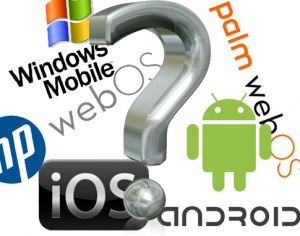 It wasn’t to long ago that when you were talking about what technology to use in school the discussions — or arguments — were about whether you were a Mac or PC school. These same conversations happened as schools considered what to do as they moved to a 1:1 environment.
It wasn’t to long ago that when you were talking about what technology to use in school the discussions — or arguments — were about whether you were a Mac or PC school. These same conversations happened as schools considered what to do as they moved to a 1:1 environment.
But even after schools declared victory either one was or the other, Mac or PC, the war has been reopened and it more interesting that ever.
Today we are faced with a myriad of choices when it comes to computing. The desktop is slowly going the way of the dodo bird, laptops are everywhere, but even more so are the number of mobile devices. Smartphones, iPhones, iPads, tablets and all sorts of new and different device seem to be coming out each day and the operating systems and apps that each of these devices run are equally as vast.
The discussion of Windows or Mac has moved on to that of iOS, webOS, Android, Windows mobile or Palm, just to name a few. Each of these have their own app stores and each offer the user with a similar, though different experience.
One of the arguments used in the Window vs Mac war was that of “what our students will be using in the real world”… well the real world in in each of their pockets, in your pocket. Students bring many of these device with them to school each day and we shut them out of the classroom, ignoring the potential. As we look at the technologies we are going to need to prepare our students to use in the real world we (schools/educators) need to open our eyes and our minds to all of these options. We can no longer rule things out because we don’t fully understand how they might be used in the classroom, rather open ourselves up to the possibilities and engage with our students to figure these things out.
How are you doing this? What is it you are considering? How does your school’s policies support or encourage the use of these tools within (and outside) of it’s walls.



Bill, I enjoyed your post especially since it is another example that helps validate our move to BYOD in our upper school. Now we haven’t moved in the direction of mobile devices as part of the program but I am confident that it is just around the corner. That said, what I find interesting is that I believe the term OS is being completely redefined. IMO which I would love to hear your thoughts on it, I consider the web to the new OS. The web is the hub of interaction, collaboration, and sharing and without it the standalone OSes seem to lose a certain 21st century umph. The “apps” are just that apps. But the strength of that app lies in how well it can be shared on the web regardless of the device with different users. It’s certainly not the classical definition of the OS but if the app being used cannot be accessed across multiple devices for the purposes of sharing and collaboration then we may have lost an opportunity. Lastly, what’s been interesting about many of the apps in the various camps is that the majority of them seem to isolate users rather than allow for collaboration on the web. In the old days, didn’t we call these apps freeware, shareware, and or utilities? It’s not a new concept, it’s just been repackaged but it needs to be repackaged with 21 century skills in mind. What do you think? Could be a great unconference session somewhere? Perhaps UC10 at Whipplehill or I’ll have to ping #isedchat to see what they think.
Cheers,
Hiram
Would love to get involved in a larger discussion on the topic. I think that tools that connect people are the key, but ones that do that and allow for some sort of localized access/storage are key. Until WiFi is a cheap, ubiquitous commodity that can be relied on for everyone, everywhere I am still doing to struggle with moving everything to the web.
Problem reintroduces some of the problems noted above, compounded by Apple’s walled garden and the disincentives for text and resource publishers to use common mark-up, etc. tools. If it’s an iOS app based deal, what about the kid who has dad’s old HP TouchPad or uses an Android phone? Having lived BYOL since 1999, we’ve been working hard to stay agnostic – helped a lot by Moodle and moving to more web based resources.
The hopeful signs are things like Evernote (my current favorite thing) that provides more platform agnostic resources.
Agreed with regards to the platform agnostic tools. I am looking and liking tools that blend to cloud and some localized storage as I am not yet sold on moving back the client/server model which I see a lot of in cloud technologies.
Reminds me of a presentation I did at Anytime Anywhere and the Laptop Institute in 2004 – Why Operating Systems Don’t Matter.
Pingback: Rogue IT in Education and the BYOD, DIY model. | williamstites.net